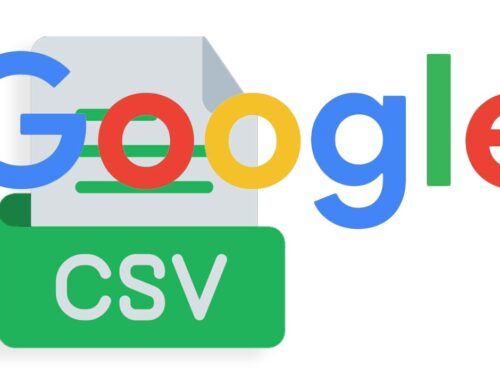After helping small businesses for over 20 years and working with Google since late 1998 I can tell you Google can be a bit of a chore for any small business. The bigger Google has grown the bigger the harder it’s to get a decent ranking position. The problem is exacerbated from so much promotion by so called SEO experts claiming you need be on the 1st page of Google for your business to survive. Knowing Google is the by far the only game in town for search it leaves small businesses willing to attempt just about anything to get the golden ticket, survival. Once a search is performed and you learn a little more about SEO you’ll find more SEO know-it-alls touting big business SEO tactics, you know- you have to do this and you need to do that. That’s all great but the bottom line is small businesses don’t have the budget that the big guy’s have. That’s where the divide is. Now there are plenty of undesirable scammers stepping in at this stage via mass emailing campaign’s claiming to be able to fix your Google woe’s if you just buy some of their expert SEO services. So you start researching SEO. After researching you’ll find yourself with a mindset of “you have to do this and you need to do that”. This leaves us vulnerable to more scams. You know you need to do something but most will do nothing. Let’s examine Google at its core. Google only knows numbers, how many backlinks, how many keywords, how many search’s get a click to your content, how much authority, and on and on. Google is just a computer and computers do 0’s and 1’s and sequential incrementing, meaning it can only count. I’m sure I’m going to get a lot of comments from that statement. Anyway, this means the bigger the number, or smaller in some cases, the better the position. Smaller budgets can’t compete on this level. You also can’t expect big budgets and small budgets to be able to afford the same quality of services. And you can’t expect the same effectiveness from SEO services given the cost divide. $10’s to $100’s of thousands of dollars per month does not compare to $0 or even $1000 dollars a month. However, there are plenty of SEO providers that step in to fill this roll.
So Google operating as a monopoly- the only game in town leaves an unfair advantage to bigger budgets. So I propose we need a different solution for business with smaller budgets. Let’s take a closer look at Google’s Monopoly.
Table of Contents
- Introduction to Google’s Monopoly
- Impact on Online Advertising
- Effects on Search Engine Results
- Influence on Smaller Competitors
- Potential Solutions and Regulations
1. Introduction to Google’s Monopoly
Google holds a significant market share in various domains, including search engines, online advertising, and mobile operating systems.
As Google continues to dominate the search engine market, digital advertising, and other sectors, concerns about its monopolistic practices have grown. This comprehensive article delves into the negative impacts of Google’s monopoly on businesses and explores possible solutions and regulations to address these issues.
Discover the effects of Google’s market dominance on online advertising, search engine results, smaller competitors, and potential strategies to mitigate these consequences. Learn about antitrust legislation, encouraging competition, and increasing transparency to foster a more diverse and competitive digital ecosystem.
Market Share Statistics
- Google’s search engine market share is over 90% globally.
- Google Ads accounts for a large portion of the digital advertising market.
- Android, Google’s mobile operating system, dominates the global smartphone market.
2. Impact on Online Advertising
Google’s monopoly in the online advertising space can lead to several negative consequences for businesses:
Increased Advertising Costs
- Google’s dominance allows it to control advertising prices.
- Smaller businesses may struggle to compete with larger companies due to high advertising costs.
Limited Alternatives
- Few alternative advertising platforms can compete with Google’s reach and targeting capabilities.
- Businesses become heavily reliant on Google Ads for online visibility, leading to a lack of diversification.
3. Effects on Search Engine Results
Google’s search engine monopoly can also impact businesses:
Search Ranking Algorithms
- Google’s algorithms can make or break a business’s online visibility.
- Algorithm updates can lead to sudden drops in organic traffic, affecting small businesses disproportionately.
Bias Towards Google Products
- Google may prioritize its own products and services in search results, disadvantaging competitors.
- Examples include Google Shopping, Google Flights, and Google My Business.
4. Influence on Smaller Competitors
Google’s dominance can stifle innovation and competition:
Market Entry Barriers
- New entrants may struggle to compete with Google’s established market presence.
- Smaller competitors may lack resources to challenge Google’s dominance.
Acquisitions and Mergers
- Google has acquired numerous companies to consolidate its market position.
- These acquisitions can limit competition and reduce choices for consumers and businesses.
5. Potential Solutions and Regulations
To address Google’s monopolistic practices, regulators and businesses can consider several strategies:
Antitrust Legislation
- Governments can enforce antitrust laws to prevent monopolistic practices.
- Break up or impose restrictions on Google’s operations to promote competition.
Encouraging Competition
- Support the development of alternative search engines and advertising platforms.
- Encourage open-source projects and collaborative initiatives to challenge Google’s dominance.
Increased Transparency
- Regulators can require Google to disclose its algorithm changes and advertising practices.
- Transparency can help businesses better understand and adapt to changes in the digital landscape.
Wrapping up
Google’s monopoly can have adverse effects on businesses, including increased advertising costs, limited alternatives, biased search results, and suppressed competition. By implementing regulatory measures and promoting competition, the negative impacts of Google’s dominance can be mitigated, fostering a more diverse and competitive digital ecosystem.














